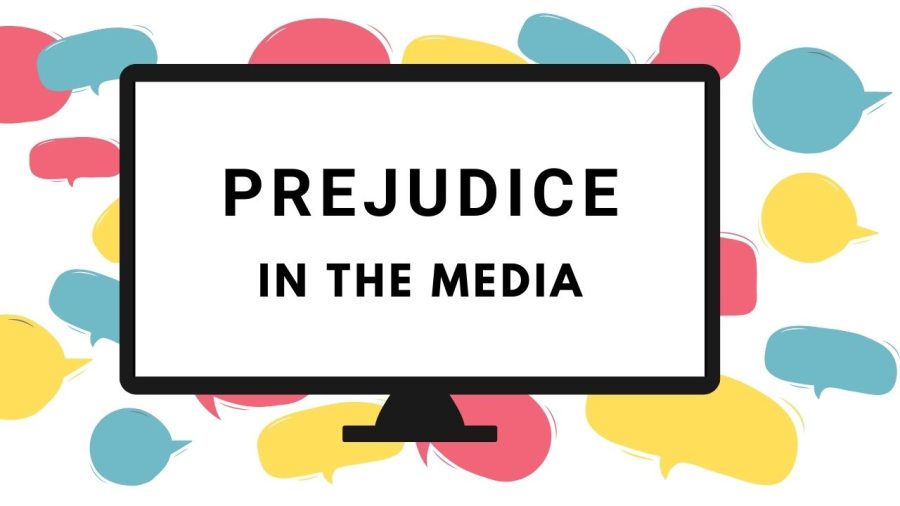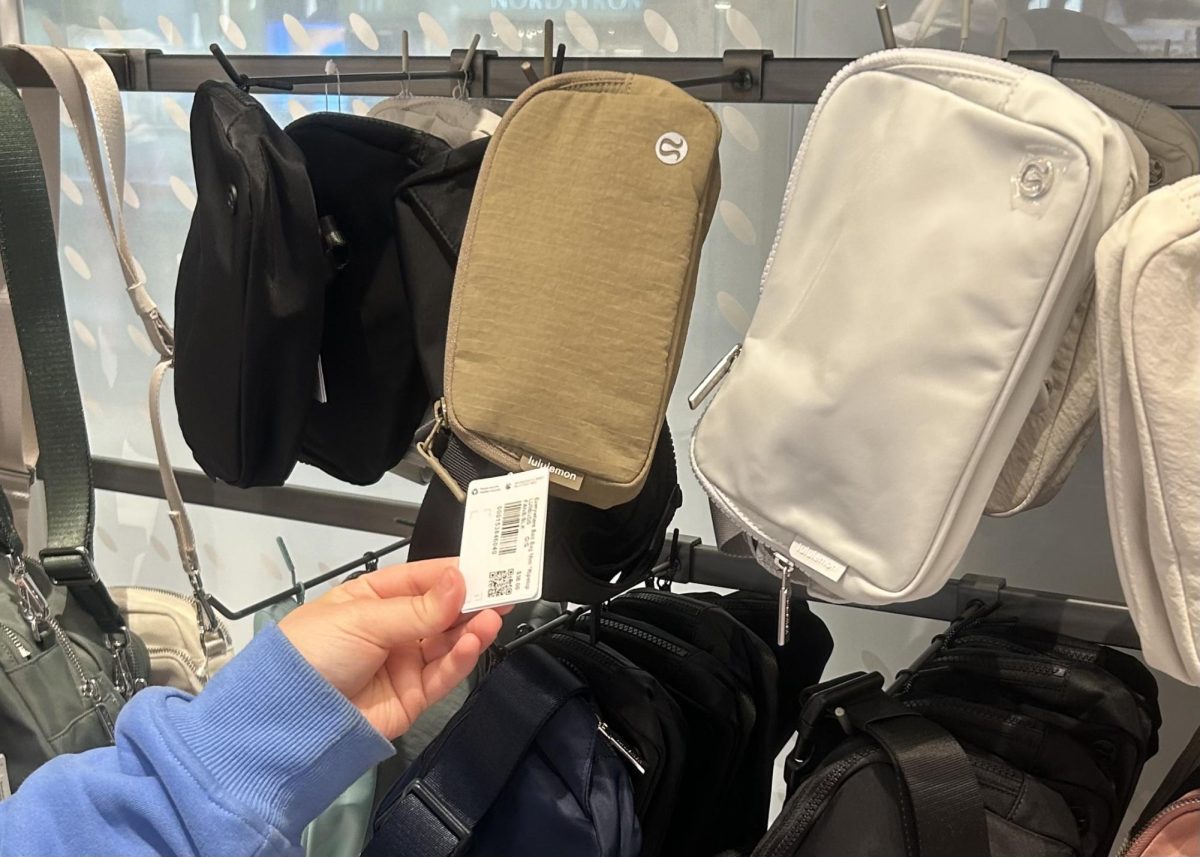The United States, along with various other countries, has seen an uptick in hate crimes in recent years. The most recent data published by the FBI reported 7,314 hate crimes in 2019. This is the highest number of hate crimes since 2008, which had a total of 7,783 hate crimes throughout the year. The majority of these attacks were based on race or ethnicity.
Racial prejudice and discrimination remain commonplace in today’s society with hate crimes on the rise. Intolerance increased in recent years due to exposure to hurtful language on the internet and other streaming services as people have a tendency to associate television portrayals of groups of people as accurate to the real world. The ability of people to access content that centers around jokes about marginalized groups normalizes bigotry.
One of these streaming services, Netflix recently experienced a walk out from employees upset over the release of a Dave Chappelle comedy special in which he made a joke about transgender individuals. Though Netflix later released a statement apologizing for the release of this content, comedy that highlights specific aspects of someone based on their identity or culture, or those that are built off of stereotypes, fosters hate as it allows for prejudice and stereotypes to be reinforced and normalized. While making jokes about someone is not inherently discriminatory, focusing on the aspects of the person that center around an aspect of their identity when making said jokes is where the problem lies.
However, the issue of the use of this humor is not as simple as the use of it by those who experience privileges. Those who experience discrimination may still experience privileges. A white homosexual man, for example, would face less intolerance than a Black homosexual woman. Though they would both experience intolerance as a result of being homosexual, the experiences of the white homosexual man would vary widely from the Black homosexual woman, who would also experience prejudice as a result of being both Black and a woman.
Members of marginalized groups need to recognize that even though they experience intolerance, they may experience it less than other members of their group. Being discriminated against in one aspect does not erase the privileges that they may experience from other areas of their identity, whether it be their sexual identity, race or gender. To make jokes about others with the excuse of being marginalized yourself ignores the fact that different groups experience different forms of discrimination. Making these jokes is still harmful, regardless of whether you experience some form of prejudice yourself.
Though Dave Chappelle may be a Black man, that does not excuse him from making jokes about transgender individuals. Chapelle claimed that white people, not marginalized groups, were the centers of his jokes despite mentioning that transgender individuals could be equated to blackface. This claim made by Chapelle erases the individuality of transgender people. His jokes highlighted stereotypes about a group of people that he cannot personally relate to as a cisgender man, and no matter the intentions of said jokes, highlighting negative stereotypes of transgender individuals allows for the normalization of these stereotypes.
Though the jokes themselves were not inherently directed at or meant to attack transgender individuals, media content tends to take videos and other instances out of context. Harm is fostered from these phrases when people only observe a portion of the content and draw untrue generalizations as a result.
Jokes focused on marginalized groups, along with hateful language towards those groups, are nothing new in the United States or around the world. Though the meaning of these words continues to shift over time, there are still many negative connotations associated with these phrases. The use of these phrases in a negative context undermines people’s understanding of marginalized groups as they begin to associate those groups with those phrases.
The continued use of these words and phrases is harmful to the health and well-being of the people who this language is centered around. A study conducted by the U.S. National Library of Medicine focused on the impact of interpersonal forms of discrimination. The first study conducted revealed that while these jokes were often dismissed as unharmful during the interaction, they later resulted in increased anxiety and other lasting harmful psychological effects among adolescents.
The use of disparagement humor, in which a marginalized group is used as the punchline of a joke, allows for hateful language to appear harmless while actually fostering further biases. The Prejudiced Norm Theory states that interactions that lead to exposure in disparagement humor affects the tolerance that groups have towards various forms of discrimination. The continued use of this humor harms the wellbeing of the people that the jokes are centered around as they begin to tolerate bigotry.
Both the news and pop-culture media are not immune to these stereotypical biases. There are many cases within the media in which Black people are characterized as criminals, Latinx people are characterized in a sexual manner, Native Americans are characterized as savages and Middle Easterners as terrorists. These are just a few of the many stereotypes present within media content. Ranging from news channels to comedy shows, characterizing groups of people in this light is harmful to how people perceive these individuals. The detrimental language present within the media seeps into everyday affairs, ranging from television shows to regular conversations. Individuals at the center of these jokes face difficulties in their daily lives as they attempt to counteract these prejudices.
While not all media content portrays marginalized groups in a negative light, allowing for people to use offensive and discriminatory language within the media without repercussions further fosters intolerance. Continued exposure to these beliefs and ideals allows for people to become insensitive to the meaning of this language and begin to believe in it themselves. In order to avoid the continued spread of prejudice, it is important to point out to others when groups of people are being negatively and inaccurately portrayed within the media content. By addressing and recognizing stereotypes, people can learn to avoid being influenced by the media’s portrayal of others and address the biases that they may have developed in the past.
To decrease the biases present within the media, we must reframe how media is used. Instead of using media content to mock and reinforce stereotypes, we can use it to connect with people of various backgrounds and identities. However, decreasing intolerance and the hateful acts that result from this prejudice cannot be done without first acknowledging that this harmful language exists. It is not enough to simply recognize the existence of these instances as in the long run they help in supporting and normalizing bigotry. To decrease the harmful effects of bigotry, people must actively seek to call out those who use hateful language and jokes centered around marginalized groups, while also refusing to listen to or support media that fosters these biases.



![Sophomore Maryem Hidic signs up for an academic lab through Infinite Campus, a grading and scheduling software. Some students enjoyed selecting their responsive schedule in a method that was used school-wide last year. “I think it's more inconvenient now, because I can't change [my classes] the day of, if I have a big test coming and I forget about it, I can't change [my class],” sophomore Alisha Singh said.](https://pwestpathfinder.com/wp-content/uploads/2025/10/DSC_0012-1200x801.jpg)
![Senior Dhiya Prasanna examines a bottle of Tylenol. Prasanna has observed data in science labs and in real life. “[I] advise the public not to just look or search for information that supports your argument, but search for information that doesn't support it,” Prasanna said.](https://pwestpathfinder.com/wp-content/uploads/2025/10/DSC_0073-2-1200x800.jpg)
![Junior Fiona Dye lifts weights in Strength and Conditioning. Now that the Trump administration has instituted policies such as AI deregulation, tariffs and university funding freezes, women may have to work twice as hard to get half as far. "[Trump] wants America to be more divided; he wants to inspire hatred in people,” feminist club member and junior Clara Lazarini said.](https://pwestpathfinder.com/wp-content/uploads/2025/05/Flag.png)
![As the Trump administration cracks down on immigration, it scapegoats many immigrants for the United States’ plights, precipitating a possible genocide. Sophomore Annabella Whiteley moved from the United Kingdom when she was eight. “It’s pretty scary because I’m on a visa. When my visa expires next year, I’m not sure what’s going to happen, especially with [immigration] policies up in the air, so it is a concern for my family,” Whiteley said.](https://pwestpathfinder.com/wp-content/uploads/2025/05/DSC_0077-7copy.jpg)
![Shifting global trade, President Donald Trump’s tariffs are raising concerns about economic stability for the U.S. and other countries alike. “[The tariffs are] going to pose a distinct challenge to the U.S. economy and a challenge to the global economy on the whole because it's going to greatly upset who trades with who and where resources and products are going to come from,” social studies teacher Melvin Trotier said.](https://pwestpathfinder.com/wp-content/uploads/2025/05/MDB_3456-1200x800.jpg)



![Some of the most deadly instances of gun violence have occurred in schools, communities and other ‘safe spaces’ for students. These uncontrolled settings give way to the need for gun regulation, including background and mental health checks. “Gun control comes about with more laws, but there are a lot of guns out there that people could obtain illegally. What is a solution that would get the illegal guns off the street? We have yet to find [one],” social studies teacher Nancy Sachtlaben said.](https://pwestpathfinder.com/wp-content/uploads/2025/01/DSC_5122-1200x800.jpg)

